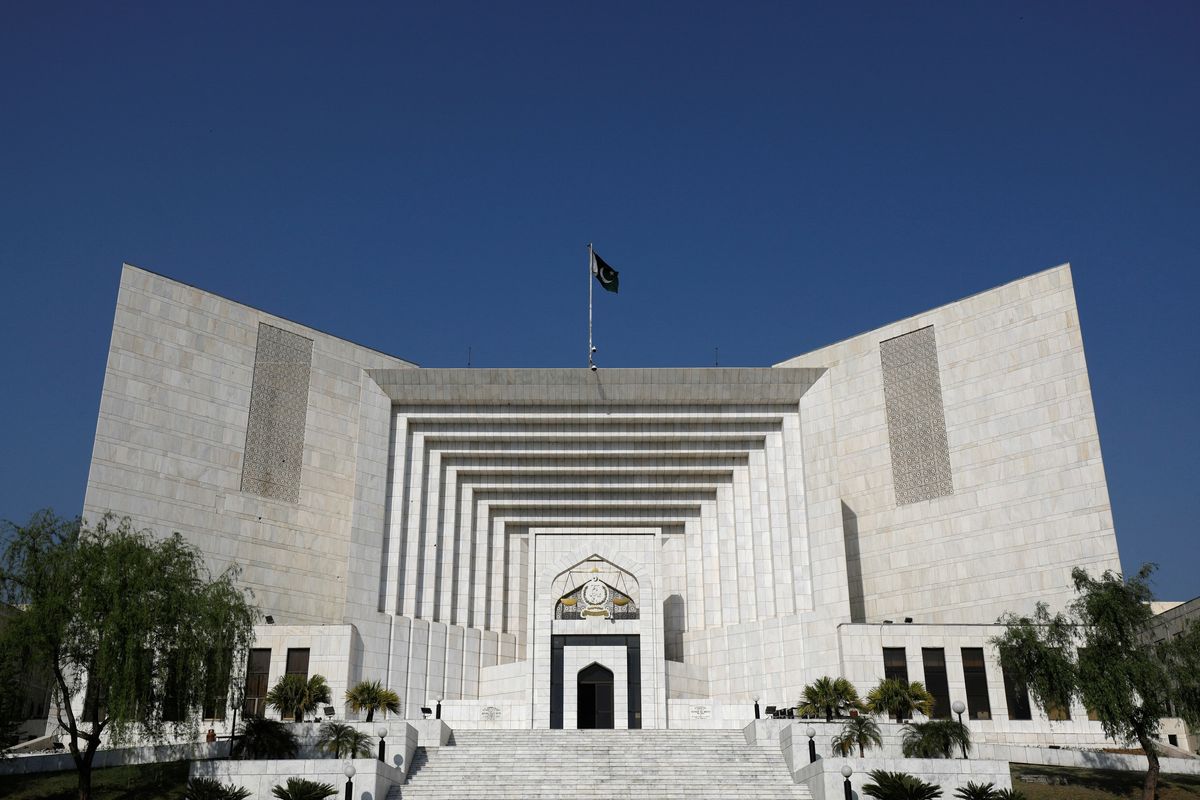Pakistan top court to hear pleas against constitutional amendment on Oct 7
26th amendment proposes parliamentary panel for chief justice selection, three-year term, sparking expert and opposition concern
Ali Hamza
Correspondent
Ali; a journalist with 3 years of experience, working in Newspaper. Worked in Field, covered Big Legal Constitutional and Political Events in Pakistan since 2022. Graduate of DePaul University, Chicago.

Pakistan’s top court is set to hear petitions challenging the 26th constitutional amendment on October 7, in a case that has sparked widespread legal and political debate over judicial independence.
An eight-member constitutional bench of the Supreme Court, headed by Justice Aminuddin Khan, will hear the case alongside Justices Jamal Khan Mandokhail, Muhammad Ali Mazhar, Ayesha Malik, Hasan Azhar Rizvi, Musarrat Hilali, Naeem Afghan, and Shahid Bilal.
The 26th amendment, passed by parliament and signed into law on October 21, 2024, introduces notable changes to Pakistan’s judicial framework.
Key provisions include a new parliamentary committee-based mechanism for selecting the chief justice of Pakistan and a fixed three-year term for the office - measures that have drawn sharp scrutiny from legal experts and opposition parties.
Since its enactment, the amendment has faced multiple legal challenges in the Supreme Court and provincial high courts. Petitions have been filed by political parties, civil society groups and bar associations.
The Pakistan Tehreek-e-Insaf (PTI) has sought annulment of major sections, arguing that the law undermines judicial independence and violates the Constitution’s basic structure. In March 2025, over three dozen civil society members questioned the integrity of the parliamentary vote that passed the amendment, while the Lahore High Court Bar and Sindh Bar Council have filed similar challenges citing unconstitutionality.
Petitioners argue that the amendment expands executive and legislative control over judicial appointments, compromises fundamental constitutional principles, and was passed through expedited procedures with minimal public consultation, raising questions about its legitimacy.
The Supreme Court has been hearing these challenges since late 2024, with the most recent hearing held in the last week of January 2025.
The upcoming October 7 hearing is expected to focus on threshold issues such as justiciability, the limits of parliament’s amending powers under Article 239 and whether any parts of the amendment contravene the “basic structure” doctrine of the Constitution.
Beyond the courtroom, the amendment has ignited public protests and political demonstrations, reflecting deep divisions over the balance of power between Pakistan’s executive, legislature and judiciary. Analysts say the ruling could have lasting implications for the country’s legal framework and democratic institutions.







Comments
See what people are discussing